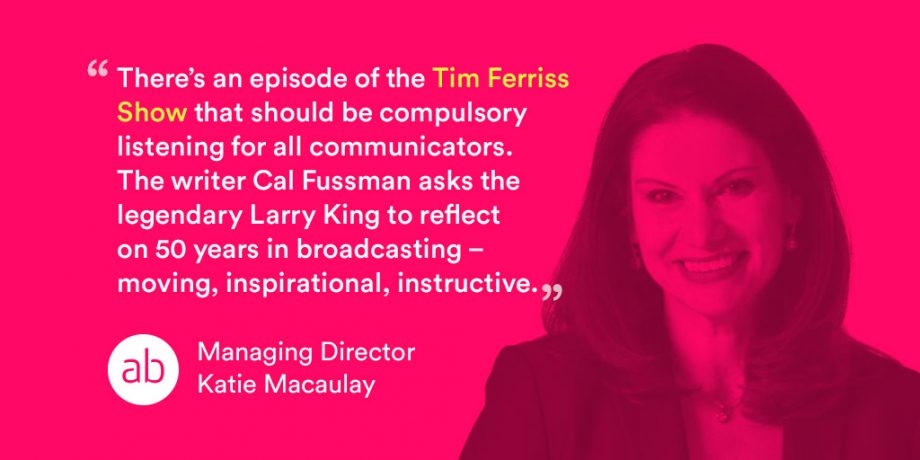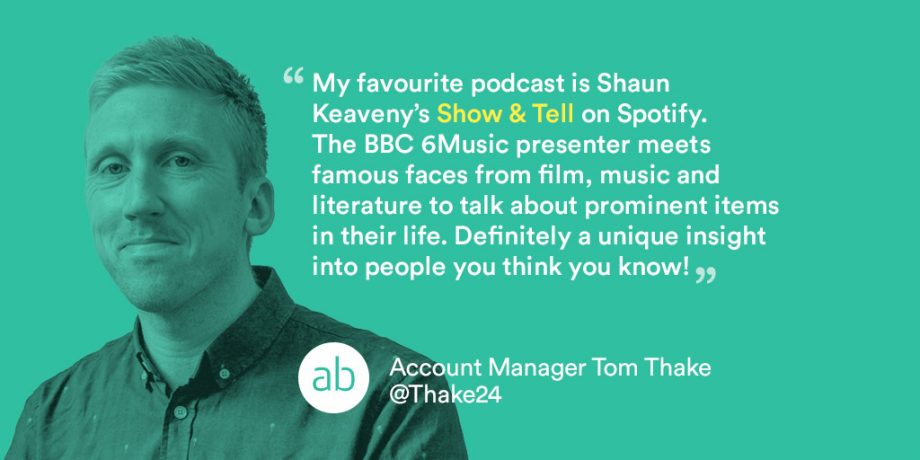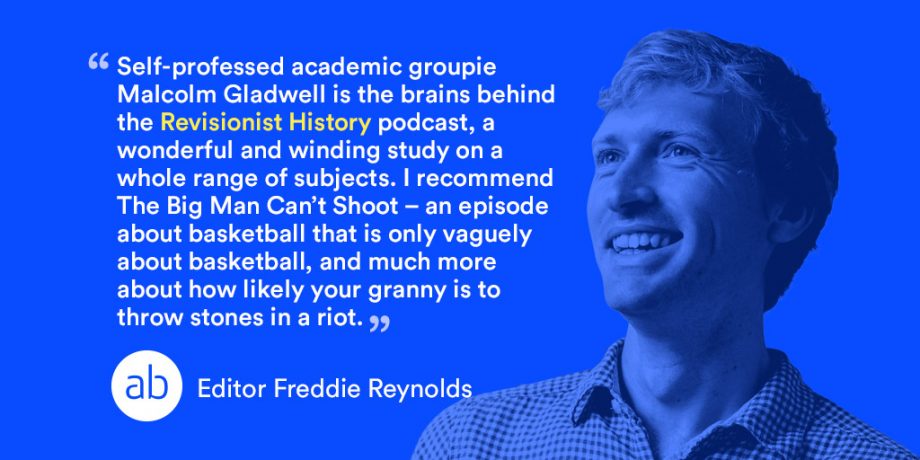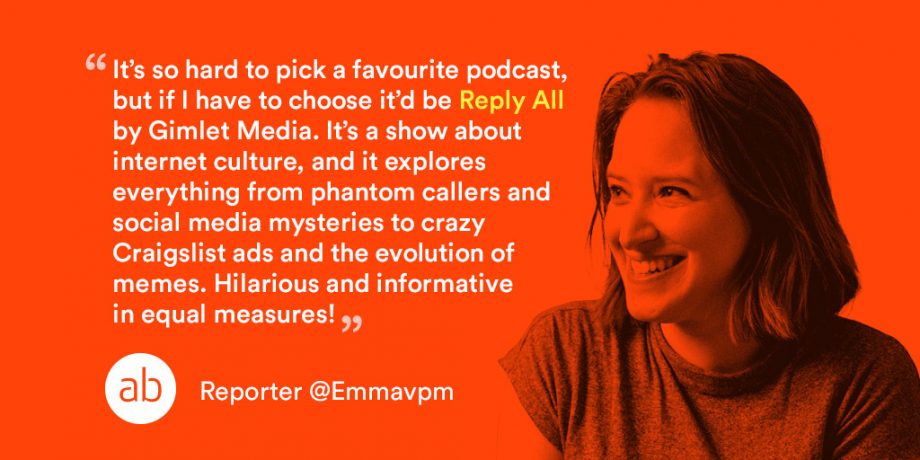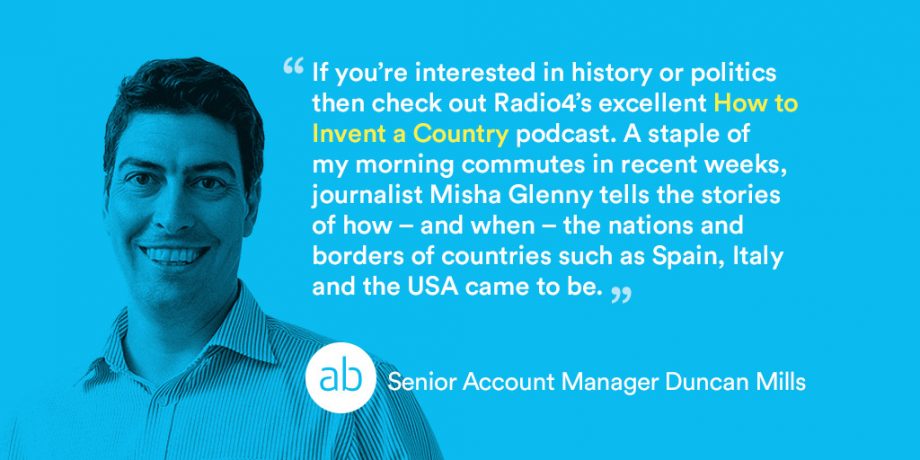The humble podcast has never been more popular. The latest research suggests 23 per cent of us have listened to a podcast in the last month. Perhaps it’s time to take podcasting seriously as an IC tool.
The 2018 Gatehouse State of the Sector report found less than 20% of IC teams are currently using podcasts. But we predict for companies with a remote workforce, shift workers and those not tied to a desk, there’s great potential.
Many companies are already employing podcasts to great effect. Earlier this year, American Airlines chose the format to reach its 120,000 employees. This is a a series of eight-minute podcasts called Tell Me Why that gives employees (and the public) a peek at the decision-making process of its leaders.
Salesforce has a suite of podcast “shows” aimed at sales staff, each with its own set of episodes.
Podcasts are cost effective, relatively quick to produce and interviewees like them – there is no need to apply make-up or stare down a camera lens.
Podcasts help personalise a business. While this is a broadcast mechanism, it has a powerful capacity to capture employees’ voices and reflect genuine conversations happening across your organisation.
Employees can hear leaders explain a decision or course of action in their own words. Sensitive or complex issues, such as workplace stress or questions relating to mental health, can be tackled in depth and with emotion perhaps not so easily felt through a company-wide email.
So, where do IC practitioners start? The Marketing Companion is positioned as ‘The world’s most entertaining marketing podcast’. This episode is particularly useful for anyone thinking of starting a podcast.
Here are our tips for successful podcasting
Tip one: journalistic skills
Podcasting requires the same journalistic skills we would apply to any other form of content.
It’s an ideal storytelling medium – it draws the listener in. You have several choices in terms of format. Do you want one host, an interview format or an out-in-the-field reporting style? When you come up with a format, stick with it, and keep it short and regular.
A podcast can add value to your comms matrix – an in-depth interview after a town hall, employees telling their own stories on certain issues, or perhaps a specific series of podcasts aimed at new joiners.
Knowing your audience is key. If in doubt about what issues they’d like your podcast to explore, simply ask them.
Tip two: writing for voice
It has often been said that the pictures are better on radio. Without images, audio requires you to use your imagination.
Audio storytelling is very different from writing for print or TV. Descriptions need to be vivid and interviewees need to be coaxed to be more descriptive. As well as keeping sentences short, use all the Ps – pitch, pacing, pause and phrasing.
Scripted elements such as signposting, sound effects and music should be employed to keep your audience engaged. Websites such as Audioblocks.com are great for sound effects but be careful with music as there are copyright issues.
Finally, involve the audience – many podcasts have plenty of calls to action. Get your listeners to subscribe, leave a comment or visit the show notes. And remember: your podcast will need a web page.
Tip three: don’t be scared of the technical bit
The technical side of podcasting tends to frighten people, but the best way to tackle it is to keep things simple.
The basic equipment you’ll need are a laptop, headphones and sound recording equipment. An audio recorder on your smartphone, such as the Voice Memo app, will suffice – just don’t forget to use airplane mode, so your recording is not interrupted by a call. Do invest in a microphone as sound is all important.
Putting it all together involves some basic editing tools such as Audacity and Reaper.
Tip four: make it discoverable
Podcasts are blurring the line of internal and external comms, so it’s really important that your podcast is very easy to find. You can share your podcast on Soundcloud or Spotify, among other streaming sites, on an RSS feed, via an email newsletter or direct by social media channels.
Ask yourself: can employees subscribe? It will likely help you maintain your listenership if they can.
Tip five: measurement
The great thing about podcasting is you can measure downloads and open your podcast up to feedback. Set a target and measure your podcast’s effectiveness against it.
Podcasting for communications professionals can be part of a multi-channel approach, bridging the gap between text and video. And with ‘Voice’ an emerging platform, it is well worth exploring audio.
And finally…
We launched a podcast in January. The Internal Comms Podcast quickly ranked in the top 100 business podcasts. Series one is available to download.
If you’d like help setting up your podcast, email us at info@abcomm.co.uk
Here are some great shows specifically aimed at communicators and also a selection of our personal favourites:
ICology by Chuck Gose
For Immediate Release by Shel Holtz
AB produced a pilot podcast to launch our MD’s book from Cascade to Conversation. Listen here
AB’s marketing manager Zoe Blaskey produces a success podcast called Motherkind

